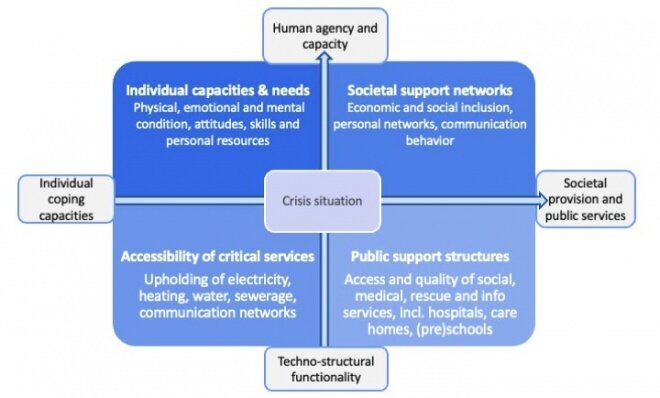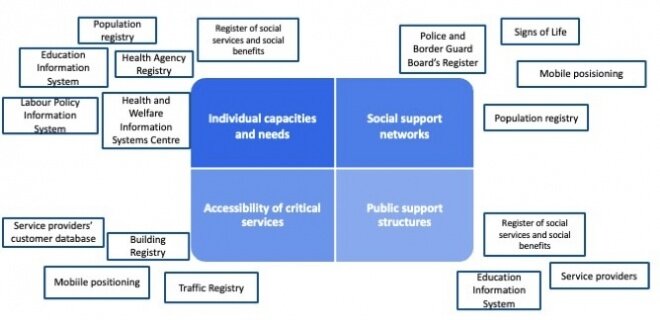-
Faculty of Arts and HumanitiesDean's Office, Faculty of Arts and HumanitiesJakobi 2, r 116-121 51005 Tartu linn, Tartu linn, Tartumaa EST0Institute of History and ArchaeologyJakobi 2 51005 Tartu linn, Tartu linn, Tartumaa EST0Institute of Estonian and General LinguisticsJakobi 2, IV korrus 51005 Tartu linn, Tartu linn, Tartumaa EST0Institute of Philosophy and SemioticsJakobi 2, III korrus, ruumid 302-337 51005 Tartu linn, Tartu linn, Tartumaa EST0Institute of Cultural ResearchÜlikooli 16 51003 Tartu linn, Tartu linn, Tartumaa EST0Institute of Foreign Languages and CulturesLossi 3 51003 Tartu linn, Tartu linn, Tartumaa EST0School of Theology and Religious StudiesÜlikooli 18 50090 Tartu linn, Tartu linn, Tartumaa EST0Viljandi Culture AcademyPosti 1 71004 Viljandi linn, Viljandimaa EST0Professors emeritus, Faculty of Arts and Humanities0Associate Professors emeritus, Faculty of Arts and Humanities0Faculty of Social SciencesDean's Office, Faculty of Social SciencesLossi 36 51003 Tartu linn, Tartu linn, Tartumaa EST0Institute of EducationJakobi 5 51005 Tartu linn, Tartu linn, Tartumaa EST0Johan Skytte Institute of Political StudiesLossi 36, ruum 301 51003 Tartu linn, Tartu linn, Tartumaa EST0School of Economics and Business AdministrationNarva mnt 18 51009 Tartu linn, Tartu linn, Tartumaa EST0Institute of PsychologyNäituse 2 50409 Tartu linn, Tartu linn, Tartumaa EST0School of LawNäituse 20 - 324 50409 Tartu linn, Tartu linn, Tartumaa EST0Institute of Social StudiesLossi 36 51003 Tartu linn, Tartu linn, Tartumaa EST0Narva CollegeRaekoja plats 2 20307 Narva linn, Ida-Virumaa EST0Pärnu CollegeRingi 35 80012 Pärnu linn, Pärnu linn, Pärnumaa EST0Professors emeritus, Faculty of Social Sciences0associate Professors emeritus, Faculty of Social Sciences0Faculty of MedicineDean's Office, Faculty of MedicineRavila 19 50411 Tartu linn, Tartu linn, Tartumaa ESTInstitute of Biomedicine and Translational MedicineBiomeedikum, Ravila 19 50411 Tartu linn, Tartu linn, Tartumaa ESTInstitute of PharmacyNooruse 1 50411 Tartu linn, Tartu linn, Tartumaa ESTInstitute of DentistryL. Puusepa 1a 50406 Tartu linn, Tartu linn, Tartumaa ESTInstitute of Clinical MedicineL. Puusepa 8 50406 Tartu linn, Tartu linn, Tartumaa ESTInstitute of Family Medicine and Public HealthRavila 19 50411 Tartu linn, Tartu linn, Tartumaa ESTInstitute of Sport Sciences and PhysiotherapyUjula 4 51008 Tartu linn, Tartu linn, Tartumaa ESTprofessors emeritus, Faculty of Medicine0associate Professors emeritus, Faculty of Medicine0Faculty of Science and TechnologyDean's Office, Faculty of Science and TechnologyVanemuise 46 - 208 51003 Tartu linn, Tartu linn, Tartumaa ESTInstitute of Computer ScienceNarva mnt 18 51009 Tartu linn, Tartu linn, Tartumaa ESTInstitute of GenomicsRiia 23b/2 51010 Tartu linn, Tartu linn, Tartumaa ESTEstonian Marine Institute0Institute of PhysicsInstitute of ChemistryRavila 14a 50411 Tartu linn, Tartu linn, Tartumaa ESTInstitute of Mathematics and StatisticsNarva mnt 18 51009 Tartu linn, Tartu linn, Tartumaa EST0Institute of Molecular and Cell BiologyRiia 23, 23b - 134 51010 Tartu linn, Tartu linn, Tartumaa ESTTartu ObservatoryObservatooriumi 1 61602 Tõravere alevik, Nõo vald, Tartumaa EST0Institute of TechnologyNooruse 1 50411 Tartu linn, Tartu linn, Tartumaa ESTInstitute of Ecology and Earth SciencesJ. Liivi tn 2 50409 Tartu linn, Tartu linn, Tartumaa ESTprofessors emeritus, Faculty of Science and Technology0associate Professors emeritus, Faculty of Science and Technology0Area of Academic SecretaryHuman Resources OfficeUppsala 6, Lossi 36 51003 Tartu linn, Tartu linn, Tartumaa EST0Area of Head of FinanceFinance Office0Area of Director of AdministrationInformation Technology Office0Administrative OfficeÜlikooli 17 (III korrus) 51005 Tartu linn, Tartu linn, Tartumaa EST0Estates Office0Marketing and Communication OfficeÜlikooli 18, ruumid 102, 104, 209, 210 50090 Tartu linn, Tartu linn, Tartumaa EST0Area of Vice Rector for Academic AffairsOffice of Academic AffairsUniversity of Tartu Youth AcademyUppsala 10 51003 Tartu linn, Tartu linn, Tartumaa ESTStudent Union OfficeÜlikooli 18b 51005 Tartu linn, Tartu linn, Tartumaa EST0Centre for Learning and TeachingArea of Vice Rector for ResearchUniversity of Tartu LibraryW. Struve 1 50091 Tartu linn, Tartu linn, Tartumaa ESTGrant OfficeArea of Vice Rector for DevelopmentCentre for Entrepreneurship and InnovationNarva mnt 18 51009 Tartu linn, Tartu linn, Tartumaa EST0University of Tartu Natural History Museum and Botanical GardenVanemuise 46 51003 Tartu linn, Tartu linn, Tartumaa EST0International Cooperation and Protocol Office0University of Tartu MuseumLossi 25 51003 Tartu linn, Tartu linn, Tartumaa EST0Area of RectorRector's Strategy OfficeInternal Audit Office
University of Tartu researchers and the Rescue Board have designed a tool to identify vulnerable groups in crisis situations
The crisis sociology research group of the University of Tartu Institute of Social Studies and the Estonian Rescue Board have designed a tool helping to target rescue services and social assistance, as well as information, more effectively before and during emergencies.
Previously, no detailed assessment of social vulnerability in emergencies or plans to mitigate the impact of such situations had been carried out in Estonia. The coronavirus pandemic, however, revealed the urgent need for an analytical tool to identify those in need and to define more clearly what information and support they need in the event of emergency. The new analysis tool designed within the BuildERS project offers an opportunity to systematically analyse the social aspects of crisis vulnerability.

Factors of vulnerability in an emergency. Source: Crisis sociology research team of the University of Tartu Institute of Social Studies
Crisis experiences have shown that the prevailing understanding of the vulnerability of certain social groups, such as the elderly and people with disabilities, has become obsolete. As confirmed during the corona pandemic, anyone can become vulnerable under certain conditions and therefore, the sources of vulnerability and the vulnerable people should be analysed separately for each type of crisis.
“As a typical modern state, we have many datasets and registers reflecting the different vulnerabilities of people, but so far we have not used the opportunity to put these datasets into work for emergency planning and response,” said Kati Orru, Associate Professor of Sociology of Sustainability at the University of Tartu. The designed analysis tool enables to link vulnerability factors to the databases and provide guidance on cross-usage of the data to get information about the vulnerable groups. “It’s time we no longer identify vulnerable people solely based on the list of Christmas card recipients or the list of users of social services,” Orru added.

Vulnerability indicators in Estonian databases. Source: Crisis sociology research team of the University of Tartu Institute of Social Studies
According to Margo Klaos, Head of the South Regional Rescue Centre, the analysis tool helps specify the sources of vulnerability and the factors that aggravate vulnerability. “For example, people may be vulnerable because communications masts are out of service and they cannot get information – like it happened during the last major storm in south-eastern Estonia. Vulnerabilities may also occur if people do not understand the crisis information because it is communicated to them in a foreign language or through an unknown channel, or if, for example, they are unable to evacuate the danger area independently,” Klaos described the factors and sources of vulnerability.
In the course of BuildERS, the project aiming to increase social resilience, representatives of the University of Tartu and the Estonian Rescue Board discussed the using of the tool with crisis management experts of the Government Office, Estonian Rescue Board, the Ministry of the Interior, the Ministry of Social Affairs and the Ministry of Economic Affairs and Communications. The need for social vulnerability analysis is also addressed in the recently amended Emergency Act.
BuildERS (Building European Communities’ Resilience and Social Capital) is an international research and development project. Its partners in Estonia are the University of Tartu, Estonian Rescue Board and OÜ Positium. The project focuses on vulnerable groups and communities and their capacity to help their members. Its main goal is to increase citizens’ social capital and thereby, their resilience. The project is funded by the EU programme Horizon 2020.
Further information:
Kati Orru, Associate Professor of Sociology of Sustainability, University of Tartu, +372 515 8545, kati.orru [ät] ut.ee
Margo Klaos, Head of South Regional Rescue Centre, Estonian Rescue Board, +372 503 5112, margo.klaos [ät] rescue.ee

